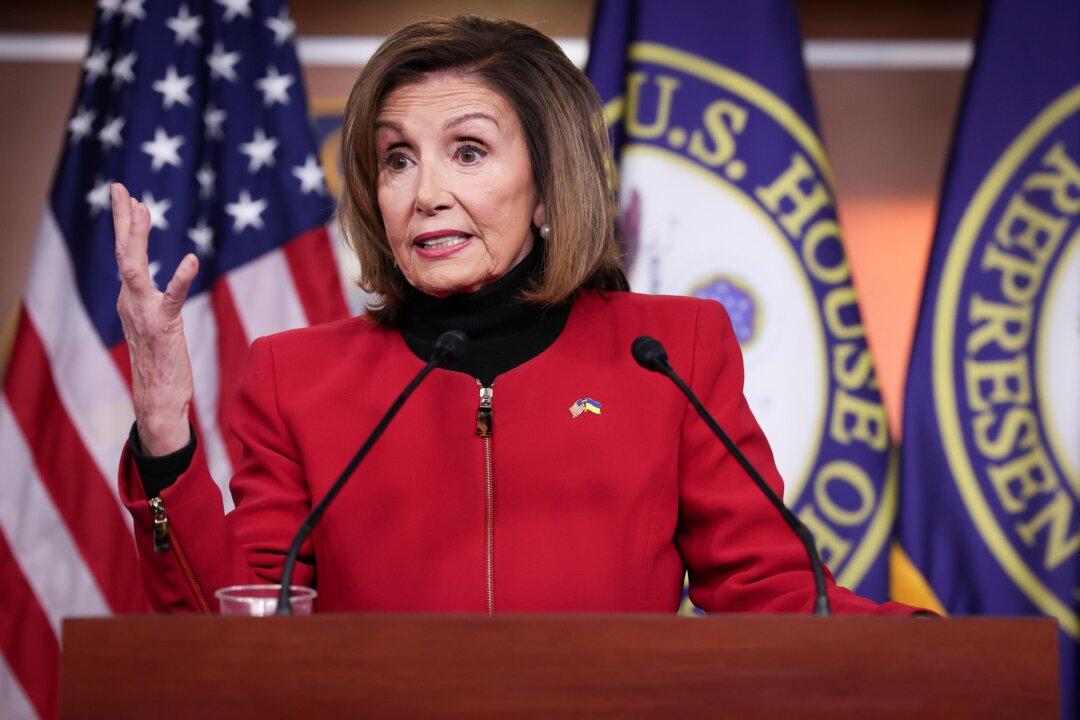Former House Speaker Nancy Pelosi’s campaign paid an Illinois man $7,500 after he accused the Democrat lawmaker of violating federal robocalling laws.
Jorge Rojas filed his lawsuit in October 2022 against Pelosi, her campaign committee “Nancy Pelosi for Congress,” and ActBlue LLC for repeatedly sending unsolicited fundraising texts, the complaint states (pdf).





